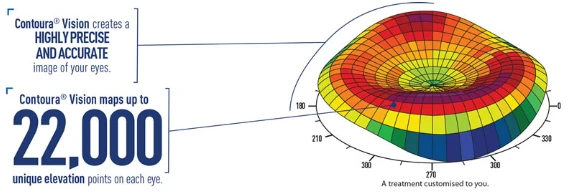When Should I Have Cataract Surgery?
personalEYES | 23 Sep 2019

According to the Australian Institute of Health and Welfare (AIHW) in 2004 almost 1.5 million Australians aged 55 or over suffered from untreated cataract, which represents 31% of that age group.
Among older Australians, cataract is the most common eye disease and the most common cause of visual impairment.
A cataract is a cloudy area in the lens of the eye that interferes with vision by diffusing light as it passes through the eye.
Although cataracts are strongly related to the ageing process, there are other risk factors including long-term exposure to sunlight and cigarette smoking that can have an impact.
Being diagnosed with cataracts does not always mean that surgery is immediately required, but as they continue to mature over time, the cataracts may cause blurry or double vision and increased sensitivity to light.
If you are considering cataract surgery here are a few questions that you should ask yourself:
- Do your cataracts affect your daily activities and hobbies?
- Do your cataracts affect your night driving?
- Can you manage your cataracts in other ways?
Cataracts cannot be cured by any type of medication, eye exercise, alternative therapy, diet or glasses. Surgery is the only way to remove a cataract.
If you feel that your activities are being restricted by blurry or foggy vision, poor night vision, or progressive loss of vision, then it might be time to consider surgery as it can have a significant improvement.
Cataract surgery involves removing the natural lens which has become discoloured and hard, and replacing it with an intra-ocular lens (IOL). Laser cataract surgery is also available and can offer cataract patients the same precision and safety of laser technology.
If you are considering cataract surgery, you should talk to an ophthalmologist about how cataracts are affecting your daily life and discuss your options.



